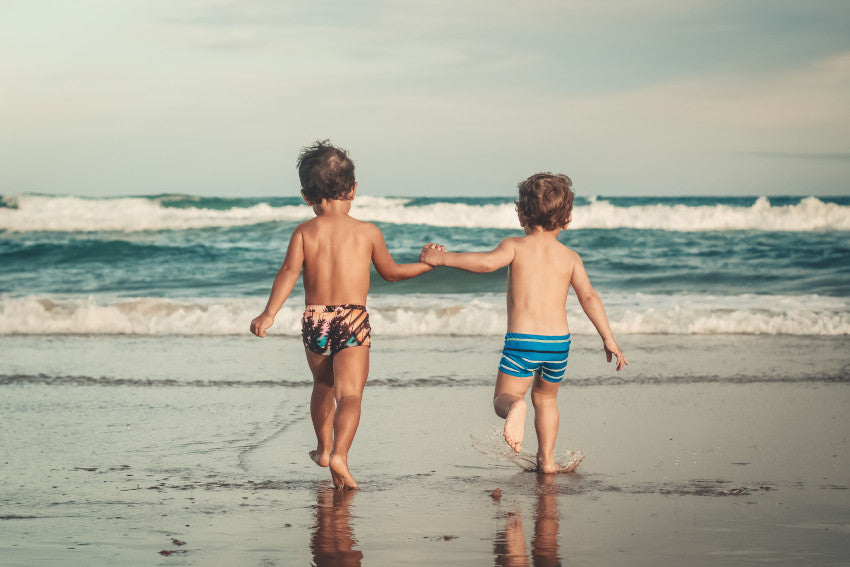Your Cart is Empty
FREE SHIPPING OVER $45 & RETURNLESS REFUNDS

Have you ever wondered about what your life would’ve been like with a younger sibling? Or do you have a sibling, and you are curious how the other half lives?
This national siblings' day we want to share some fun facts from psychological and sociological research about the effects of having a sibling.
1) Siblings Spend More Time With Each Other Than With Anyone Else.
By the time kids with siblings are 11 years old, they’ve spent roughly 33 percent of their free time with them.
Even as they get older and have more outside interests and obligations. Children still spend at least 10 hours a week with their brothers and sisters. In large families that number is more like 17 hours a week.
2) Kids Without Siblings Get Greater Exposure To The Adult World Early On.
Being an only child the conversations you hear and take part in, the TV shows you watch, and the vacations you go on, tend to skew older.
These things help brains in development. By the time the child is in first grade, he or she has a background in adult thinking and abstract concepts. Children with siblings don’t get that exposure.
3) Men With Sisters Are Better At Talking To Girls.
When you pair people up in 5-minute to 15-minute conversations, the males who grew up with sisters tend to do better than the ones who grew up with brothers. This is also true compared with only children.
Females with brothers tend to do better with boys. This is because they learn a bit about how to interact with and engage with the opposite sex.
4) The Oldest Children Get An IQ And Linguistic Advantage.
Older siblings get more mentoring with their parents before younger siblings come along. As a result, they get an IQ and linguistic advantage. Being the exclusive focus of their parents’ attention has its benefits.
By the time an older child is 2 or 3 years old, parents have sunk a great deal of time, resources, and emotional energy. There’s a lot of parental focus on the older child, even if they’re not aware they’re doing it.
5) Middle Children Get Less Parental Attention.
Middle children (and many second born) tend to invest in friendships outside the home. They can be much less connected to the family.
Birth order research shows that second and/or middle children are first to flee the family nest. Presumably as they seek their sense of belonging outside the family.
6) The Youngest Kids Develop Different Social Skills.
The Youngest kids tend to develop a greater ability to use low-power strategies. Like getting inside the minds of, and charming, other people. They learn to disarm by being funny or by having a better intuitive sense.
7) Only About Half Of All Siblings Share The Same Level Of Economic And Educational Success.
Economists tell us that sibling correlation suggests family background affects future success. Half of economic inequality in the US can be attributed to family and community influences.
8) Younger Siblings Have A Tendency To Be More Rebellious And Extroverted.
According to a study, younger siblings were much more aggressive and rebellious as opposed to their older siblings.
Younger children need to develop the ability to stand up to their siblings and make themselves heard.
9) People Tend To Form Relationships With Partners Who Are Of The Same Birth Order.
At least according to the Journal of individual psychology. So if you're a middle child, you could be more likely to marry a middle child. Similar life experiences can create a deeper understanding between partners.
Did any of these sound like you and your brother or sister? Share this list with them and see if they think so too!
Sources:
What Science has to say about Siblings
Sibling similarities and economic inequality in the US